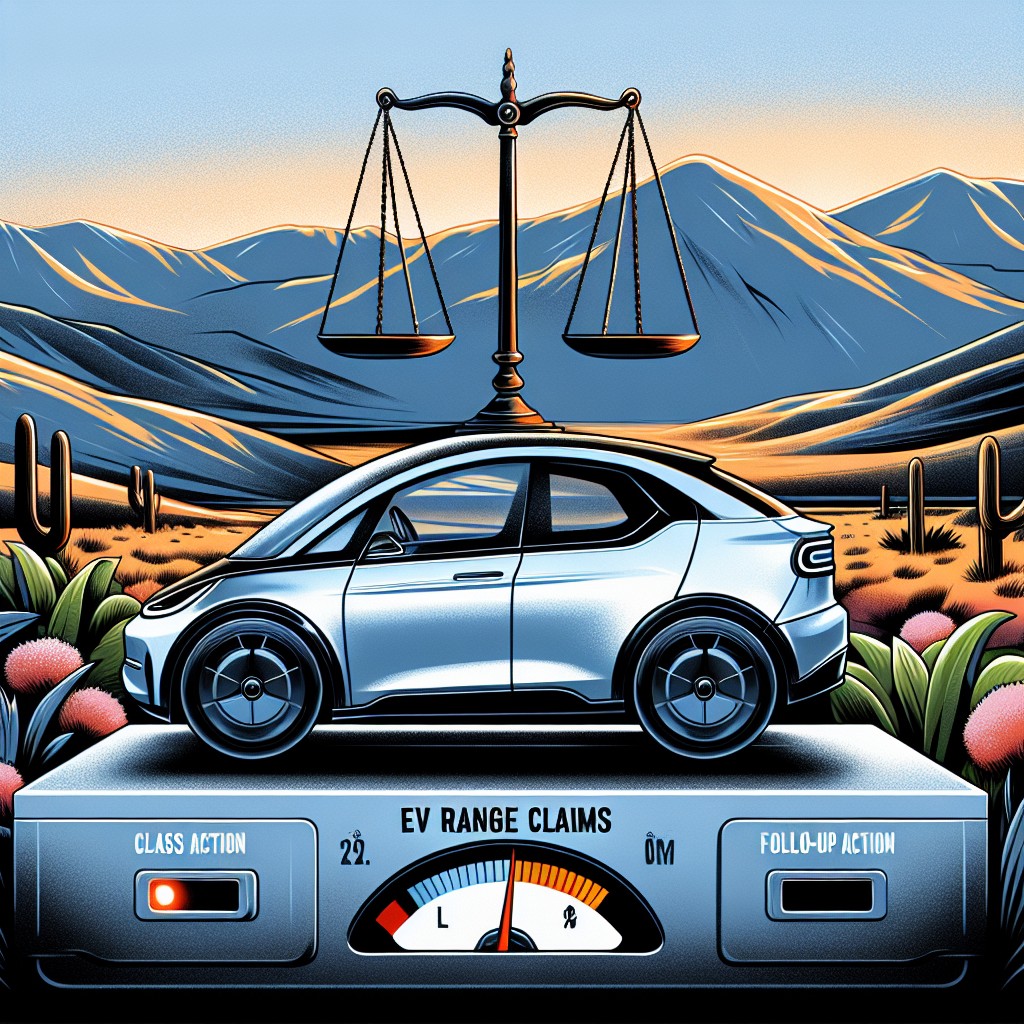Tesla, the renowned electric vehicle (EV) manufacturer, is currently facing a class action lawsuit in California over its range claims for its vehicles. The lawsuit alleges that Tesla has misled consumers by exaggerating the range capabilities of its EVs, leading to false advertising and unfair business practices.
The class action lawsuit, filed in a California federal court, accuses Tesla of intentionally inflating the range estimates for its vehicles in order to boost sales and attract customers. The plaintiffs argue that Tesla's advertised range figures do not accurately represent the actual range that can be achieved in real-world driving conditions.
One of the key claims made by Tesla in its marketing materials is that its vehicles have a range of up to 400 miles on a single charge. However, the lawsuit alleges that many Tesla owners have experienced significantly lower range than advertised, often falling short by over 100 miles. This has resulted in frustration and dissatisfaction among consumers who expected their EVs to perform as claimed.
The plaintiffs argue that Tesla's range claims have a direct impact on consumer decision-making, as range anxiety is a significant factor for potential EV buyers. By exaggerating the range capabilities of its vehicles, Tesla is accused of misleading consumers into believing that they can drive longer distances without the need for frequent charging.
Furthermore, the lawsuit claims that Tesla has failed to adequately address consumers' concerns regarding the inaccurate range claims. Despite numerous complaints and reports of lower-than-advertised range, Tesla has allegedly not taken sufficient steps to rectify the issue or provide compensation to affected customers.
Tesla has been at the forefront of the EV revolution, with its vehicles gaining popularity for their innovative technology and impressive performance. However, this class action lawsuit has cast a shadow over the company's reputation and raises questions about the accuracy of its marketing claims.
In response to the lawsuit, Tesla has stated that it stands by its range estimates and that they are based on rigorous testing and real-world data. The company argues that range can vary depending on driving conditions, weather, and other factors, and that it provides comprehensive information to customers about maximizing range.
The outcome of the class action lawsuit will have significant implications not only for Tesla but for the entire EV industry. It could set a precedent for how range claims are regulated and enforced, ensuring that consumers receive accurate information and can make informed decisions when purchasing EVs.
In conclusion, Tesla's class action lawsuit in California over its EV range claims highlights the importance of accurate advertising and transparency in the automotive industry. The lawsuit alleges that Tesla has misled consumers by exaggerating the range capabilities of its vehicles, leading to false advertising and unfair business practices. The outcome of this lawsuit will be closely watched by both Tesla enthusiasts and industry regulators, as it has the potential to shape the future of range claims in the EV market.

Published on November 1, 2023
Tesla Faces California Class Action on its EV Range Claims
Examining the Legal Battle Over Tesla's Electric Vehicle Range Assertions in California
Share This Article
More Articles You Might Like
Discover More Content
Explore our collection of articles across various topics and categories. From cutting-edge technology insights to wellness wisdom, we curate the best stories to expand your horizons.
Article ID: 331